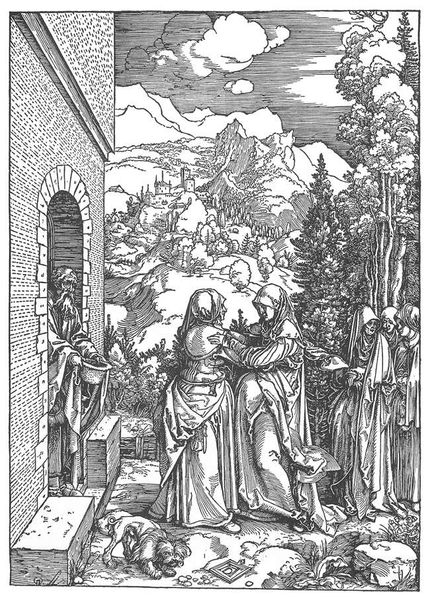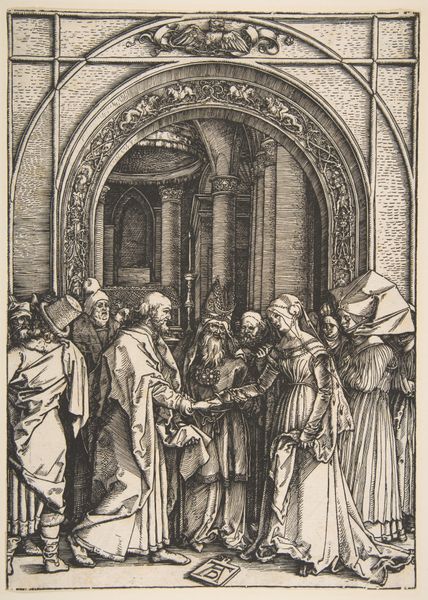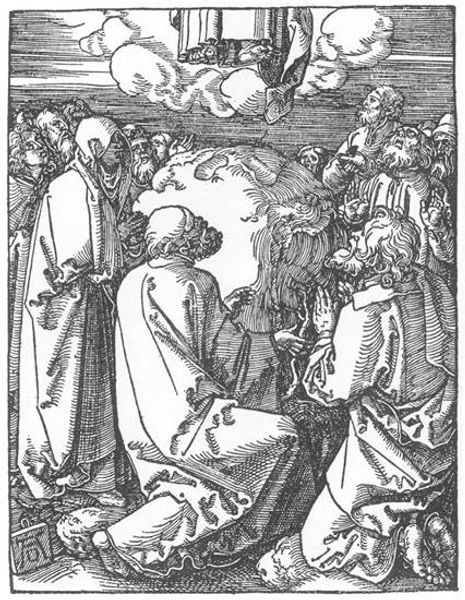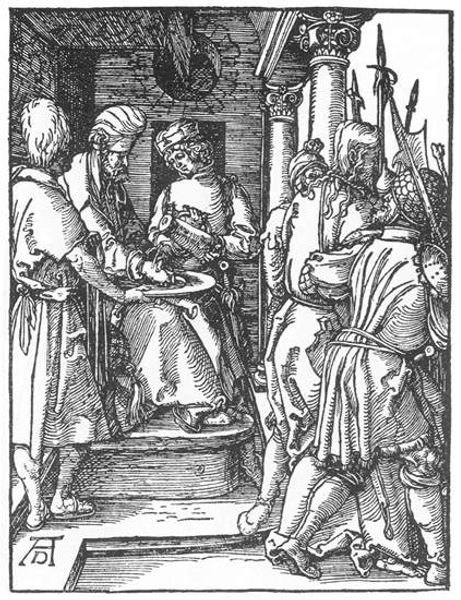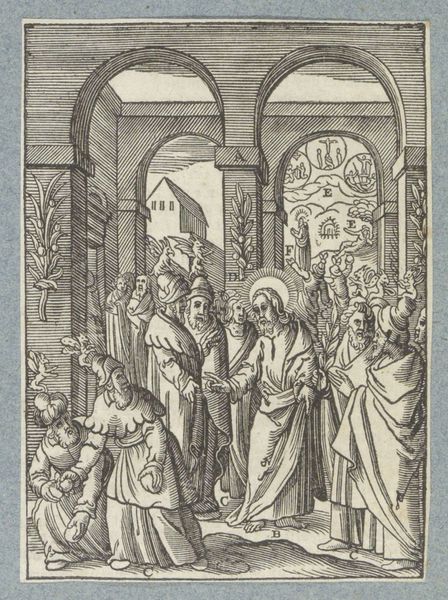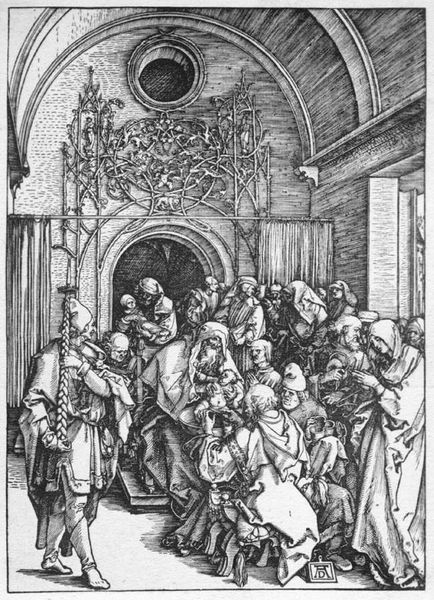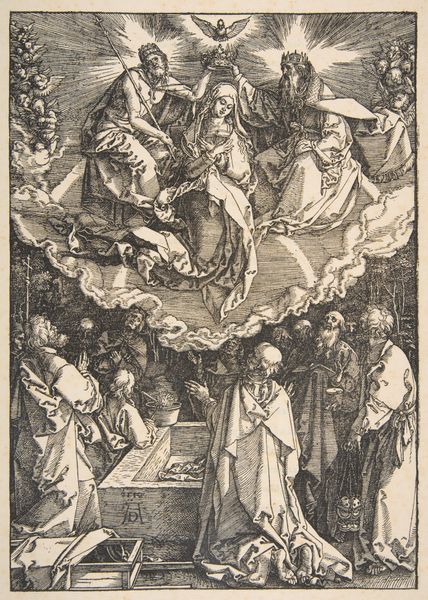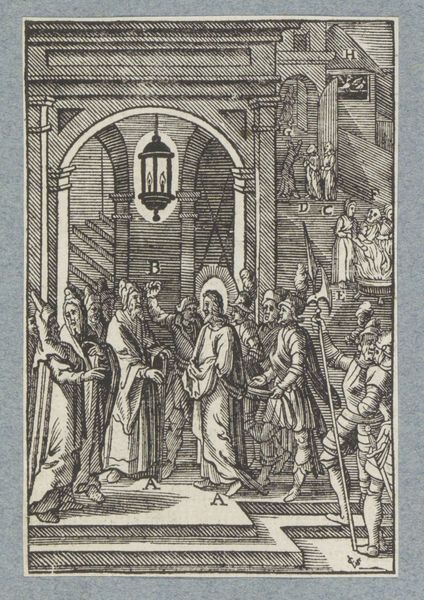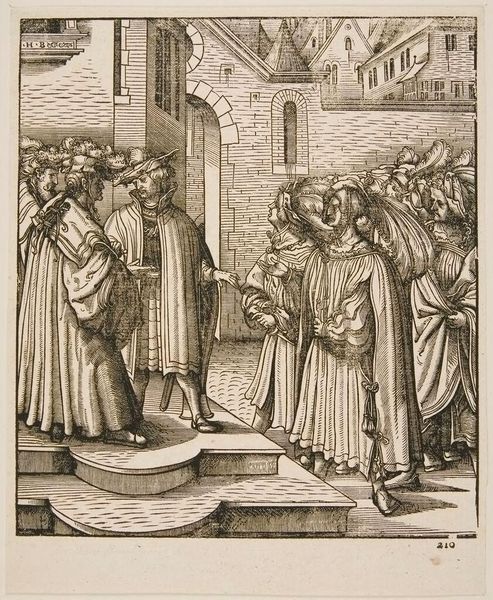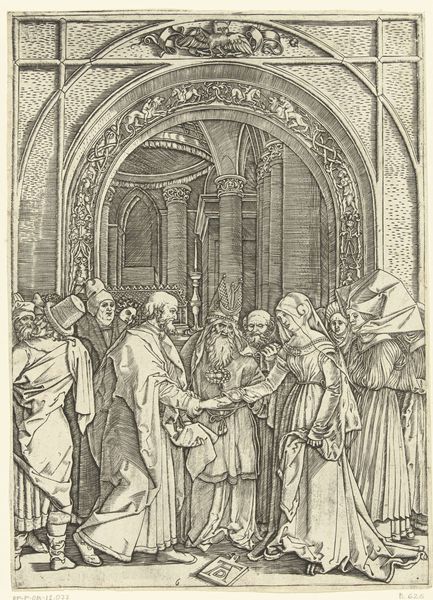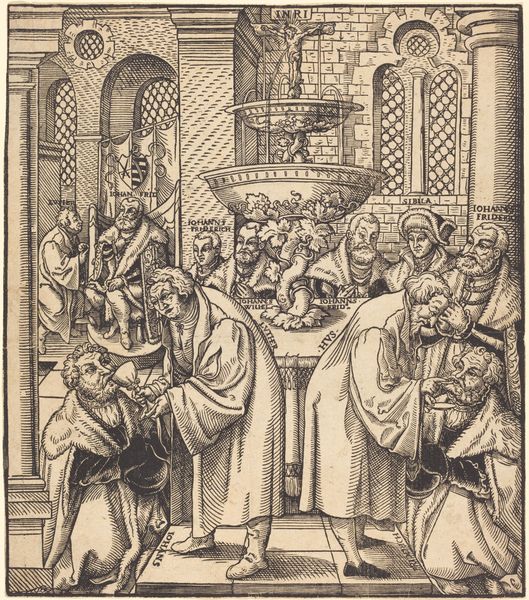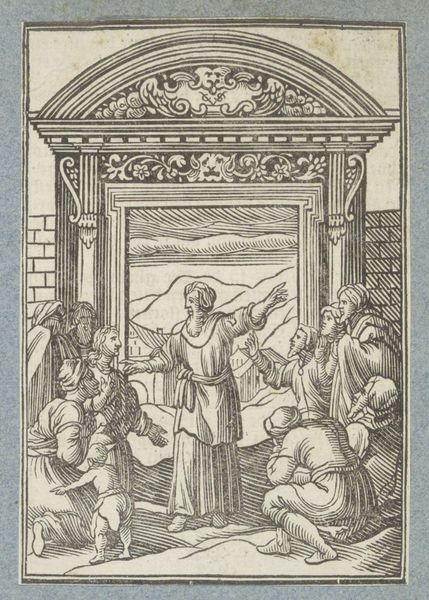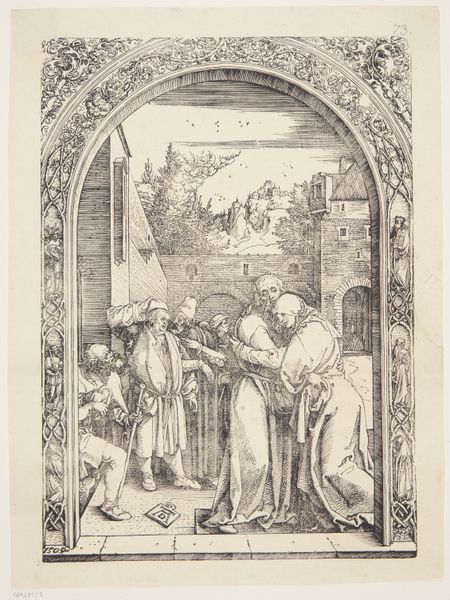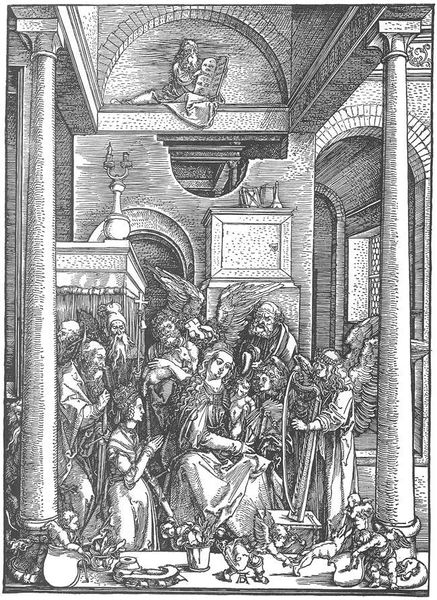
print, woodcut
#
narrative illustration
#
narrative-art
# print
#
pen illustration
#
landscape
#
figuration
#
arch
#
woodcut
#
christianity
#
history-painting
#
northern-renaissance
#
virgin-mary
Copyright: Public domain
Editor: This is Albrecht Durer's woodcut print, "The Meeting of Joachim and Anne at the Golden Gate," from 1504. It's incredibly detailed. What strikes me is how the architecture almost overwhelms the figures. How would you interpret the spatial organization in this work? Curator: The architectural framework does indeed command significant visual weight. Note the intricate ornamental arch. Durer's masterful control of line, specifically in the variations of thickness and density, generates areas of focus and shadow. Consider how the eye is drawn first to the embrace in the foreground, then carried back through the archway and out into the cityscape. Editor: So, the lines almost function like vectors, guiding your eye? The varying densities create an illusion of depth, even without color. Curator: Precisely. The composition isn't merely representational; it's carefully constructed to elicit a specific reading. We might even argue the stark contrasts inherent in the medium are essential to its narrative effect. Note, too, the pattern formed by the gathered crowd, functioning as a rhythmic device, a sort of staccato counterpoint to the legato embrace of the figures. How do those relationships impact our reading? Editor: That’s fascinating! It creates this sense of hushed intimacy within a very public moment, heightening the emotional impact. It seems the medium itself informs the meaning. I appreciate you elucidating those complex visual relationships within a formalist lens. Curator: Indeed. Paying attention to formal components enables us to engage in informed readings and derive profound meaning in what at first appear simple visual dynamics.
Comments
No comments
Be the first to comment and join the conversation on the ultimate creative platform.
